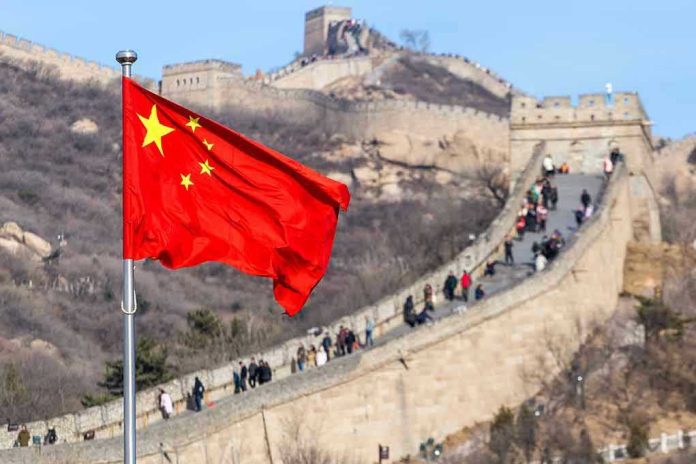
China’s Ministry of State Security has paraded a new batch of “foiled” spy plots, including a classic honeytrap, but the message behind all this drama is far more revealing than the supposed espionage itself.
At a Glance
- China publicly accused foreign agencies—hint, hint, the West—of recruiting and coercing Chinese officials for state secrets.
- Cases include a “honeytrap” blackmail scandal, gambling-induced leaks, and family betrayals—all resulting in harsh punishments.
- Beijing’s campaign signals a ramped-up crackdown on dissent and an excuse for deeper surveillance of its own citizens.
- The escalating spy game with America and friends is fueling suspicion, stifling academic and business ties, and justifying more state control.
China’s Public Spy Show: The Latest “Threats” to National Security
China’s Ministry of State Security has taken its counter-espionage crusade to the next level. Three new cases, each more melodramatic than the last, were splashed across state media in July. The first? A provincial government worker, lured overseas, fell for a “honeytrap.” After being seduced, he was blackmailed with intimate photos. The price for his indiscretion? Handing over official documents. His reward? Five years in prison. The next tale featured a desperate municipal cadre selling secrets to pay off gambling debts. The third saga involved a young official who naively shared confidential info with a relative, only to watch it end up in foreign hands—and cost him his career. According to the Ministry, these stories are proof that “foreign intelligence agencies are increasingly active,” and that weak discipline among civil servants is the soft underbelly of state security. So what’s the real message here? Tighten up, trust no one, and toe the party line, or you could be next.
The government, ever fond of ambiguity, refuses to say which countries are behind these plots. But the context leaves little doubt: the United States and its allies are the real targets of Beijing’s finger-pointing. This is the latest round in the endless tit-for-tat between China and the West. Beijing accuses the CIA of “amateurish” social media recruitment, the U.S. blames China for cyberattacks, and around we go. This public airing of dirty laundry isn’t just about spies—it’s theater, designed to remind everyone, especially government workers, that Big Brother is always watching.
Crackdown or Cover Story? The Chilling Effect on Society
The consequences of all this aren’t just personal for the unlucky scapegoats paraded before the cameras. China’s heavy-handed campaign is sending a chill through every corner of society. Public servants now live under the microscope, with discipline rules tighter than ever. Surveillance is ramping up, and every relationship—romantic, financial, or familial—is a potential weak link in the state’s armor. The Ministry’s message is clear: one slip, one indiscretion, one moment of weakness, and you’re out. Or worse.
The impact doesn’t stop at the water’s edge. Overseas Chinese, already caught between two worlds, now face suspicion and pressure from both home and abroad. Academic researchers and business leaders are feeling the squeeze as well, as the government clamps down on international collaboration and research partnerships. The cost? A stifled climate of innovation, growing mistrust, and the slow suffocation of any openness that once existed. But hey, as long as no secrets leak, who cares about progress, right?
Who Really Wins? The Geopolitical Game Behind the Spy Hysteria
Security analysts see right through the spectacle. Sure, there’s always a kernel of truth to espionage threats—every country spies. But China’s decision to parade these cases in public is about more than just warning officials. It’s about justifying the next wave of surveillance, censorship, and party control. Experts warn that the “too much caution” approach could backfire, undermining legitimate exchanges and driving a wedge between China and the rest of the world. But from the government’s perspective, that’s a feature, not a bug.
By framing every slip as evidence of foreign infiltration, China’s leadership can keep its citizens on edge and its critics silent. The narrative isn’t just about security—it’s about consolidating power, smothering dissent, and maintaining a tight grip in an increasingly uncertain world. Meanwhile, the West is caught in the crosshairs, blamed for every shadow and every whisper. The result is a spiral of suspicion, where the only winners are those who profit from fear and control. And the losers? Anyone who still believes in the free exchange of ideas, or the possibility of international cooperation without a loyalty test at every turn.













